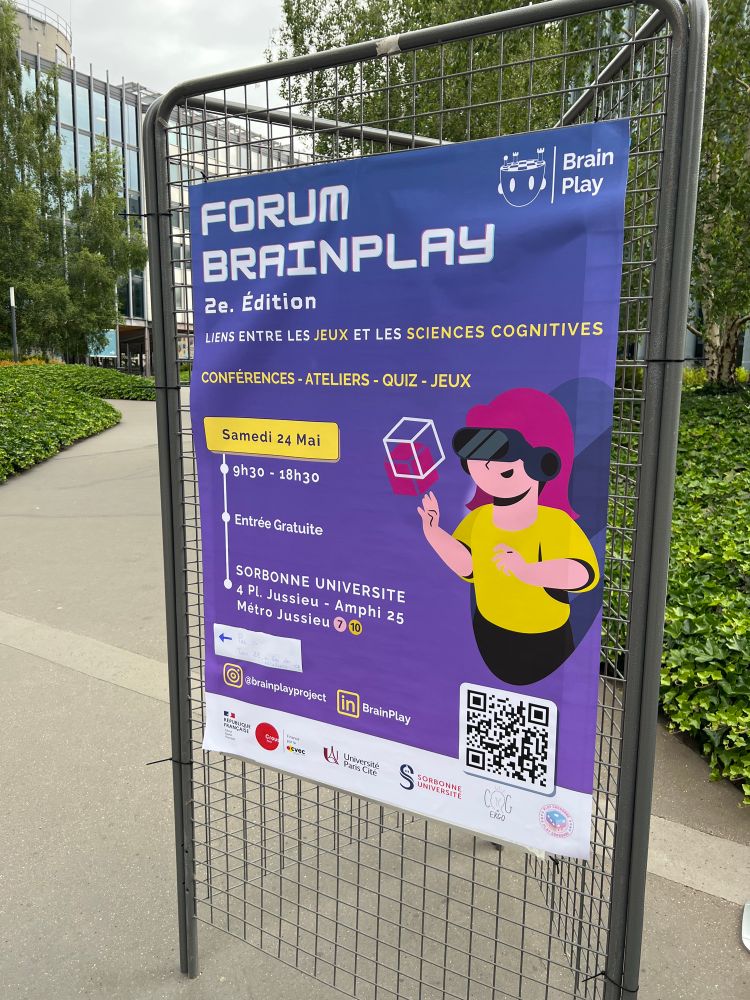
Edgar Dubourg
@edgardubourg.bsky.social
PhD student in cognitive science (ENS, Paris) studying the evolutionary origin, psychological foundations and cultural evolution of fictions. www.edgardubourg.fr
Glad to see Psychology Today feature our work on how curiosity flexibly adapts to the world around us.
www.psychologytoday.com/gb/blog/evol...
www.edgardubourg.fr/_files/ugd/9...
www.psychologytoday.com/gb/blog/evol...
www.edgardubourg.fr/_files/ugd/9...

The Ecology of Curiosity
Why are some people naturally curious while others avoid the unknown? A new study suggests it’s not just personality—it’s ecology.
www.psychologytoday.com
November 5, 2025 at 8:20 AM
Glad to see Psychology Today feature our work on how curiosity flexibly adapts to the world around us.
www.psychologytoday.com/gb/blog/evol...
www.edgardubourg.fr/_files/ugd/9...
www.psychologytoday.com/gb/blog/evol...
www.edgardubourg.fr/_files/ugd/9...
Excited to see our research highlighted in @psychscience.bsky.social Observer!
With @oliviermorin.bsky.social , @hugoreasoning.bsky.social , and Thomas Dheilly, we explored how people infer others’ knowledge: even from a single answer, they can estimate how much someone knows about a topic!
With @oliviermorin.bsky.social , @hugoreasoning.bsky.social , and Thomas Dheilly, we explored how people infer others’ knowledge: even from a single answer, they can estimate how much someone knows about a topic!

Unearthing the Nature of Knowing
Research reveals how people process information, how they acquire—and sometimes reject—knowledge, and how that compares to artificial intelligence systems’ abilities to do the same.
www.psychologicalscience.org
October 31, 2025 at 11:27 AM
Excited to see our research highlighted in @psychscience.bsky.social Observer!
With @oliviermorin.bsky.social , @hugoreasoning.bsky.social , and Thomas Dheilly, we explored how people infer others’ knowledge: even from a single answer, they can estimate how much someone knows about a topic!
With @oliviermorin.bsky.social , @hugoreasoning.bsky.social , and Thomas Dheilly, we explored how people infer others’ knowledge: even from a single answer, they can estimate how much someone knows about a topic!
Reposted by Edgar Dubourg
MEDIAS I Très belle chronique de « Histoire naturelle de la fiction» de @edgardubourg.bsky.social @normalesup.bsky.social paru le 03/09 aux éditions Humensciences 👉 bit.ly/4nvYP9C

September 15, 2025 at 10:40 AM
MEDIAS I Très belle chronique de « Histoire naturelle de la fiction» de @edgardubourg.bsky.social @normalesup.bsky.social paru le 03/09 aux éditions Humensciences 👉 bit.ly/4nvYP9C
Reposted by Edgar Dubourg
We're officially launching the new PSL CultureLab in 10 days !
If you're interested in the research of a collective bridging Computational Humanities, Social Sciences and Cultural Evolution, you can check our programme (and come to our event, if you're in Paris 22 September):
psl.eu/agenda/collo...
If you're interested in the research of a collective bridging Computational Humanities, Social Sciences and Cultural Evolution, you can check our programme (and come to our event, if you're in Paris 22 September):
psl.eu/agenda/collo...
Colloque inaugural du Grand programme de recherche CultureLab | PSL
Recherche, CultureLab inaugure ses travaux le 22 septembre 2025 au Campus Condorcet avec une journée consacrée aux sciences humaines et sociales computationnelles et à l’évolution culturelle. , Le Gra...
psl.eu
September 12, 2025 at 3:09 PM
We're officially launching the new PSL CultureLab in 10 days !
If you're interested in the research of a collective bridging Computational Humanities, Social Sciences and Cultural Evolution, you can check our programme (and come to our event, if you're in Paris 22 September):
psl.eu/agenda/collo...
If you're interested in the research of a collective bridging Computational Humanities, Social Sciences and Cultural Evolution, you can check our programme (and come to our event, if you're in Paris 22 September):
psl.eu/agenda/collo...
Merci Le Monde des Livres pour cette lecture attentive et cette belle critique de mon livre…
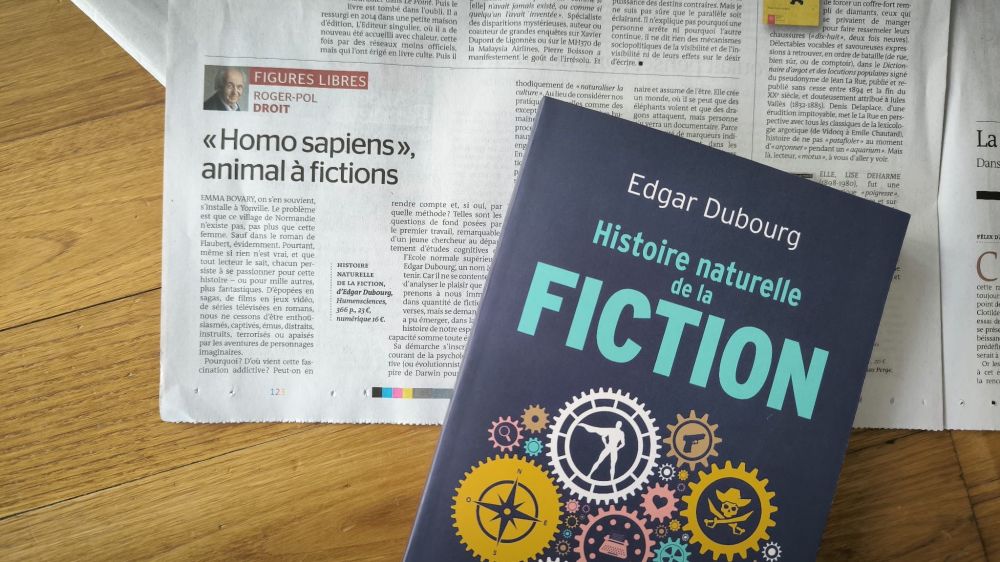
September 12, 2025 at 9:08 AM
Merci Le Monde des Livres pour cette lecture attentive et cette belle critique de mon livre…
Reposted by Edgar Dubourg
Happy to share that my first paper is out in Thinking & Reasoning! 📄📢
With Aikaterini Voudouri, @boissinesther.bsky.social & @wimdeneys.bsky.social we show that deliberate reasoning helps not just to correct but also to justify intuitive judgments.
🔗Full paper: shorturl.at/JTeTi
Quick thread below!
With Aikaterini Voudouri, @boissinesther.bsky.social & @wimdeneys.bsky.social we show that deliberate reasoning helps not just to correct but also to justify intuitive judgments.
🔗Full paper: shorturl.at/JTeTi
Quick thread below!

August 21, 2025 at 7:46 AM
Happy to share that my first paper is out in Thinking & Reasoning! 📄📢
With Aikaterini Voudouri, @boissinesther.bsky.social & @wimdeneys.bsky.social we show that deliberate reasoning helps not just to correct but also to justify intuitive judgments.
🔗Full paper: shorturl.at/JTeTi
Quick thread below!
With Aikaterini Voudouri, @boissinesther.bsky.social & @wimdeneys.bsky.social we show that deliberate reasoning helps not just to correct but also to justify intuitive judgments.
🔗Full paper: shorturl.at/JTeTi
Quick thread below!
Today’s popular fictions can be extremely far from reality: The Lord of the Rings, Avatar, The Legend of Zelda, Avengers: Endgame. But has this always been the case?

August 12, 2025 at 10:26 AM
Today’s popular fictions can be extremely far from reality: The Lord of the Rings, Avatar, The Legend of Zelda, Avengers: Endgame. But has this always been the case?
I’ve long wanted to explore horror, and I did it with the very person who helped crack the paradox of horror… We looked at what makes horror scary.
Vulnerability and the computational logic of fear: insights from the horror genre
Vulnerability and the computational logic of fear: insights from the horror genre
Formulaic horror! 👹💀😱
Research by @edgardubourg.bsky.social and @morbidpsych.bsky.social (giveaway handle!) defines a Protagonist Vulnerability Index, which accurately predicts genre (horror), fear in non-horror films, and fear-related physiology (heart rate); and...
buff.ly/wscaJll
1/2
Research by @edgardubourg.bsky.social and @morbidpsych.bsky.social (giveaway handle!) defines a Protagonist Vulnerability Index, which accurately predicts genre (horror), fear in non-horror films, and fear-related physiology (heart rate); and...
buff.ly/wscaJll
1/2

July 4, 2025 at 4:22 PM
I’ve long wanted to explore horror, and I did it with the very person who helped crack the paradox of horror… We looked at what makes horror scary.
Vulnerability and the computational logic of fear: insights from the horror genre
Vulnerability and the computational logic of fear: insights from the horror genre
We often have to judge who is knowledgeable—precisely when we are not. Can humans really do that? Our new paper in Psychological Science shows that, surprisingly, we can. drive.google.com/file/d/1b15E...
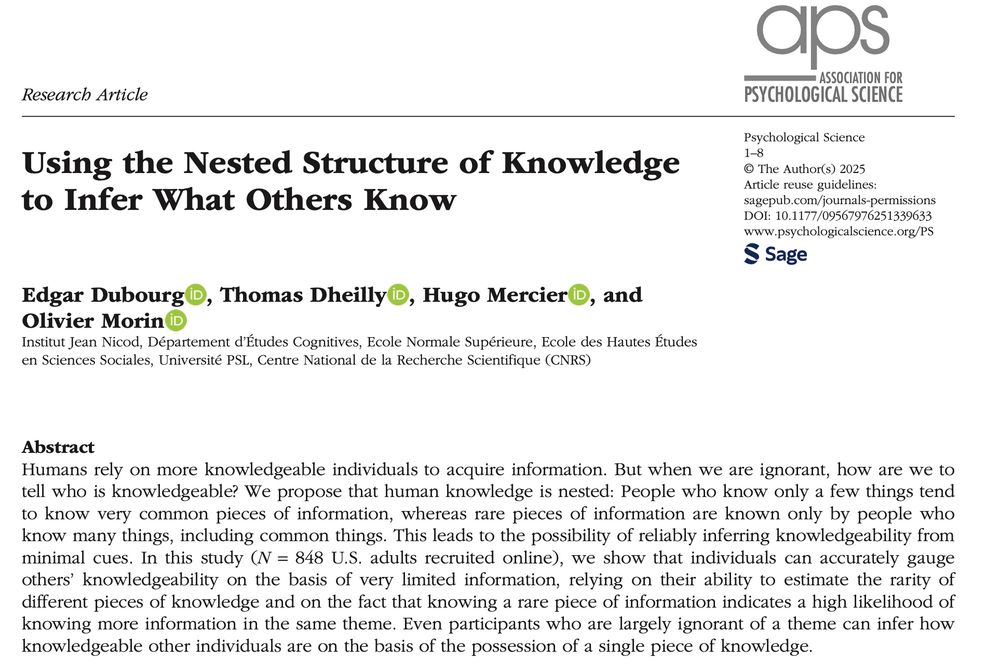
June 2, 2025 at 11:43 AM
We often have to judge who is knowledgeable—precisely when we are not. Can humans really do that? Our new paper in Psychological Science shows that, surprisingly, we can. drive.google.com/file/d/1b15E...
A great opportunity for a PhD Scolarship at the new CultureLab (Paris), at the intersection of the humanities, the computational sciences, and cultural evolution!



May 3, 2025 at 8:42 AM
A great opportunity for a PhD Scolarship at the new CultureLab (Paris), at the intersection of the humanities, the computational sciences, and cultural evolution!
Imaginary worlds like Star Wars and Game of Thrones dominate global culture. Are they really a recent phenomenon, or have they always been central to storytelling? In our latest paper, we investigate the historical trajectory of imaginary worlds with new large-scale data.

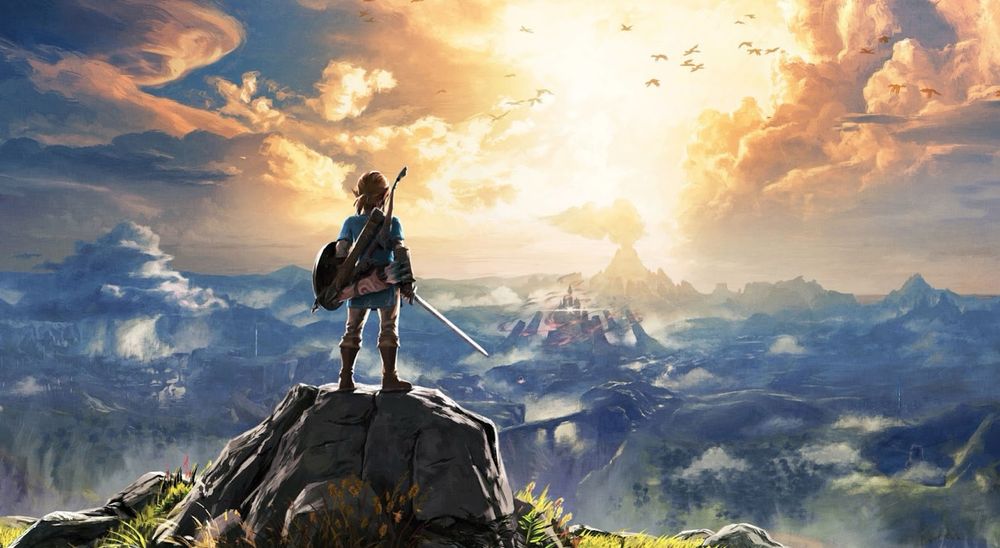
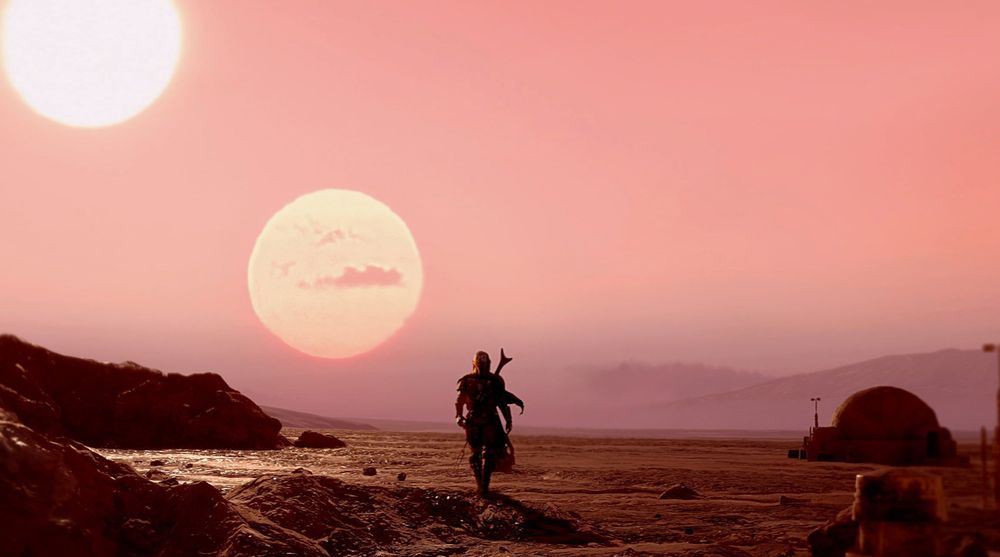

April 29, 2025 at 12:42 PM
Imaginary worlds like Star Wars and Game of Thrones dominate global culture. Are they really a recent phenomenon, or have they always been central to storytelling? In our latest paper, we investigate the historical trajectory of imaginary worlds with new large-scale data.
Et vous pouvez tester votre profile de gamers ici 👉 www.the-deepmodel.fr 👈
March 18, 2025 at 11:57 AM
Et vous pouvez tester votre profile de gamers ici 👉 www.the-deepmodel.fr 👈
From Tetris to Zelda, to Elden Ring and League of Legends… our new paper with
@valerian-chambon.bsky.social, published in Entertainment Comuting
delves into the diversity of video games and gamers' preferences 🎮. We present a cognitive framework for understanding this diversity. ⬇️
@valerian-chambon.bsky.social, published in Entertainment Comuting
delves into the diversity of video games and gamers' preferences 🎮. We present a cognitive framework for understanding this diversity. ⬇️
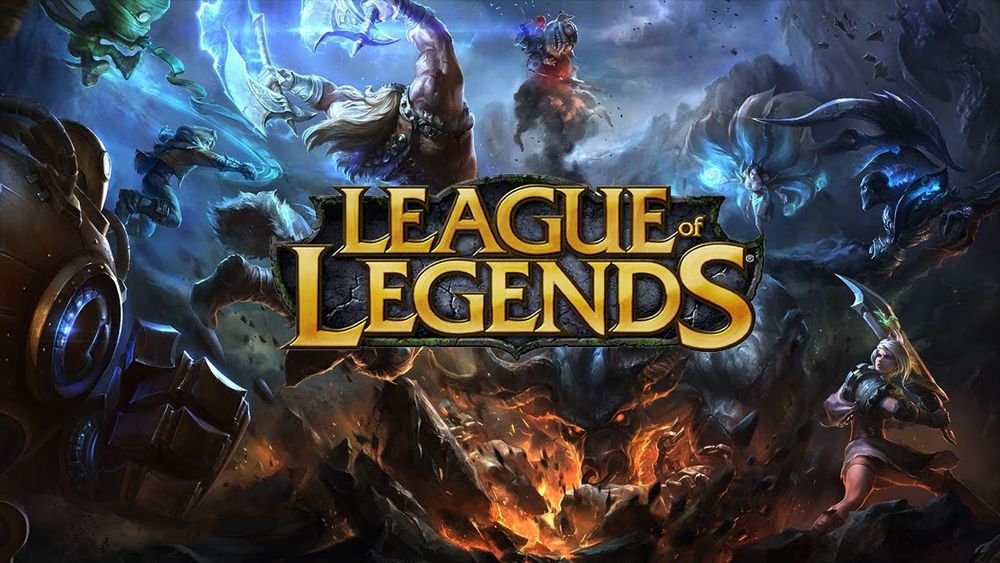
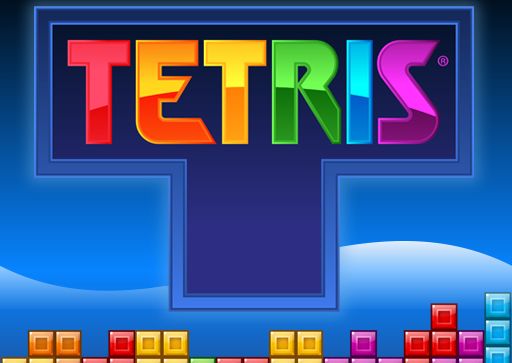
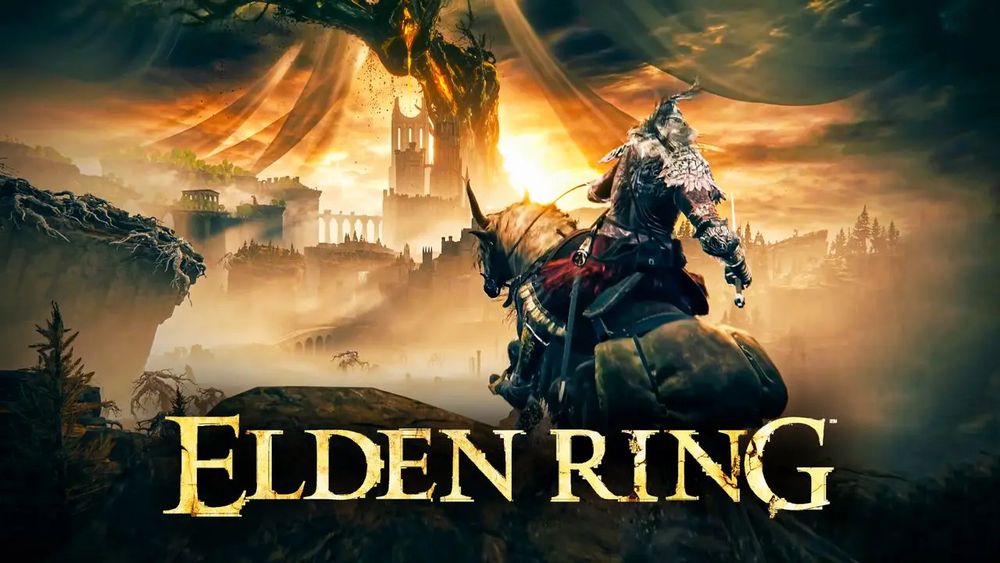

February 27, 2025 at 9:50 AM
From Tetris to Zelda, to Elden Ring and League of Legends… our new paper with
@valerian-chambon.bsky.social, published in Entertainment Comuting
delves into the diversity of video games and gamers' preferences 🎮. We present a cognitive framework for understanding this diversity. ⬇️
@valerian-chambon.bsky.social, published in Entertainment Comuting
delves into the diversity of video games and gamers' preferences 🎮. We present a cognitive framework for understanding this diversity. ⬇️
👏
Out in @naturehumbehav.bsky.social
Can people tell true from false news?
Yes! Our meta-analysis shows that people rate true news as more accurate than false news (d = 1.12) and were better at spotting false news than at recognizing true news (d = 0.32).
www.nature.com/articles/s41...
Can people tell true from false news?
Yes! Our meta-analysis shows that people rate true news as more accurate than false news (d = 1.12) and were better at spotting false news than at recognizing true news (d = 0.32).
www.nature.com/articles/s41...
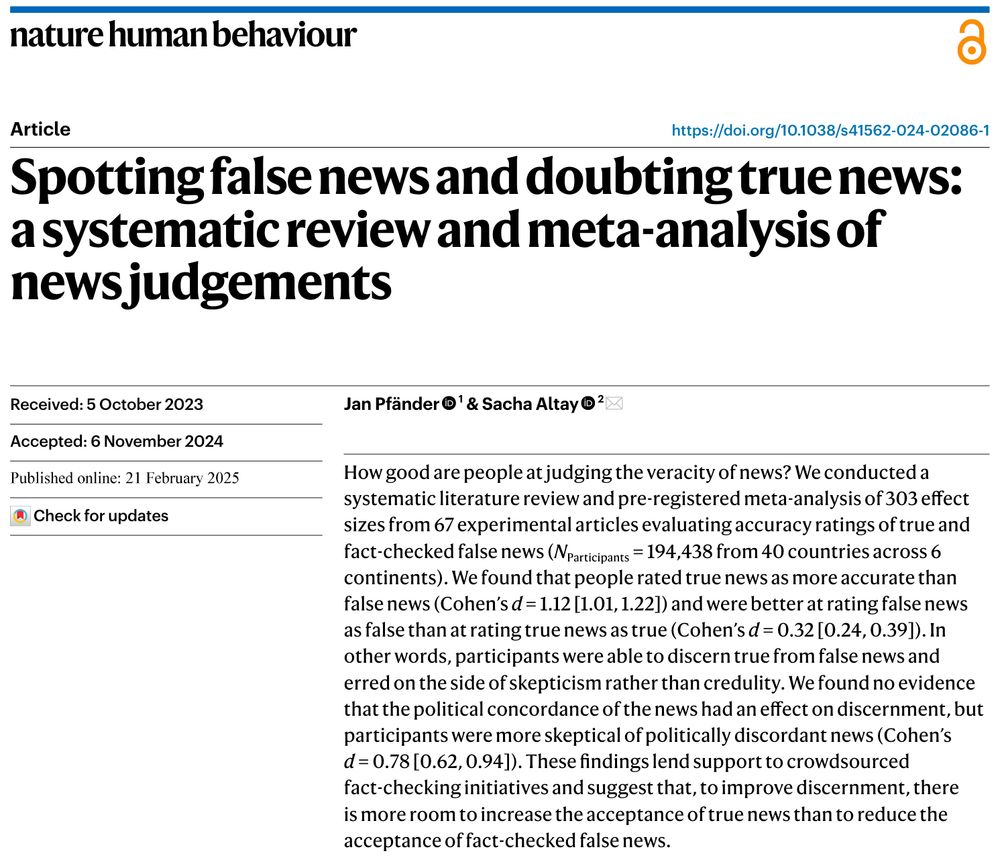
February 21, 2025 at 12:09 PM
👏
Timely indeed 😍🧸
Conveniently published for Valentine's Day, here's a cute study about the evolution of teddy bears we did with @hsamani.bsky.social, @edgardubourg.bsky.social, @oliviermorin.bsky.social & many others 🐻
brill.com/view/journal...
brill.com/view/journal...
brill.com
February 14, 2025 at 2:10 PM
Timely indeed 😍🧸
In response to the fantastic article by @koumurayama.bsky.social & Hayley Jach on the importance of unpacking motivation constructs, we explain how evolutionary psychologists try to do this by studying input-output relationships in a way that aligns with adaptive function.
January 31, 2025 at 5:21 PM
In response to the fantastic article by @koumurayama.bsky.social & Hayley Jach on the importance of unpacking motivation constructs, we explain how evolutionary psychologists try to do this by studying input-output relationships in a way that aligns with adaptive function.
Super happy to have contributed to this project. We asked people to report their enjoyment while experiencing different kinds of curiosity (insight, exploration, morbid) in different kinds of media (novels, movies, video games, non fiction). Check Marius' post for the results!
🥳 My first publication ever in Personality and Individual Difference, with @edgardubourg.bsky.social and @hugoreasoning.bsky.social.
Insight can arise from a wide range of experiences, from making groundbreaking discoveries to reading a whodunit. Are some people more interested in this feeling?
Insight can arise from a wide range of experiences, from making groundbreaking discoveries to reading a whodunit. Are some people more interested in this feeling?
January 15, 2025 at 11:14 AM
Super happy to have contributed to this project. We asked people to report their enjoyment while experiencing different kinds of curiosity (insight, exploration, morbid) in different kinds of media (novels, movies, video games, non fiction). Check Marius' post for the results!
Reposted by Edgar Dubourg
Do we cooperate because of institutions, or do institutions exist because we cooperate?
In this @pnas.org paper led by @jliep.bsky.social, with @lfitouchi.bsky.social & N. Baumard, we develop a mathematical model that answers this question.
👇
www.pnas.org/doi/10.1073/...
In this @pnas.org paper led by @jliep.bsky.social, with @lfitouchi.bsky.social & N. Baumard, we develop a mathematical model that answers this question.
👇
www.pnas.org/doi/10.1073/...

December 16, 2024 at 2:12 PM
Do we cooperate because of institutions, or do institutions exist because we cooperate?
In this @pnas.org paper led by @jliep.bsky.social, with @lfitouchi.bsky.social & N. Baumard, we develop a mathematical model that answers this question.
👇
www.pnas.org/doi/10.1073/...
In this @pnas.org paper led by @jliep.bsky.social, with @lfitouchi.bsky.social & N. Baumard, we develop a mathematical model that answers this question.
👇
www.pnas.org/doi/10.1073/...
Feeling lucky and grateful for me and my students to have welcomed researchers whose work on fiction I deeply admire and find so inspiring (@marchye.bsky.social, @mathiasclasen, @maryannefisher). Thanks to them and to my students for an incredibly insightful semester!



December 10, 2024 at 11:23 AM
Feeling lucky and grateful for me and my students to have welcomed researchers whose work on fiction I deeply admire and find so inspiring (@marchye.bsky.social, @mathiasclasen, @maryannefisher). Thanks to them and to my students for an incredibly insightful semester!
Reposted by Edgar Dubourg
Can we trust a group of people to be right, and to be competent, simply because they agree on something?
In a new paper in Cognition, @bdecourson.bsky.social, @hugoreasoning.bsky.social and I argue that yes, in many cases we can.
authors.elsevier.com/a/1kA8Q2Hx2x...
1/
In a new paper in Cognition, @bdecourson.bsky.social, @hugoreasoning.bsky.social and I argue that yes, in many cases we can.
authors.elsevier.com/a/1kA8Q2Hx2x...
1/
authors.elsevier.com
November 27, 2024 at 3:32 PM
Can we trust a group of people to be right, and to be competent, simply because they agree on something?
In a new paper in Cognition, @bdecourson.bsky.social, @hugoreasoning.bsky.social and I argue that yes, in many cases we can.
authors.elsevier.com/a/1kA8Q2Hx2x...
1/
In a new paper in Cognition, @bdecourson.bsky.social, @hugoreasoning.bsky.social and I argue that yes, in many cases we can.
authors.elsevier.com/a/1kA8Q2Hx2x...
1/
Reposted by Edgar Dubourg
Why do we enjoy fictional stories?
@edgardubourg.bsky.social et al argue their features activate psychological mechanisms that evolved long before we started telling stories, with sensitivity to certain mechanisms explaining preferences for certain story ingredients: bit.ly/3Ojwlki
@edgardubourg.bsky.social et al argue their features activate psychological mechanisms that evolved long before we started telling stories, with sensitivity to certain mechanisms explaining preferences for certain story ingredients: bit.ly/3Ojwlki

February 13, 2024 at 6:42 AM
Why do we enjoy fictional stories?
@edgardubourg.bsky.social et al argue their features activate psychological mechanisms that evolved long before we started telling stories, with sensitivity to certain mechanisms explaining preferences for certain story ingredients: bit.ly/3Ojwlki
@edgardubourg.bsky.social et al argue their features activate psychological mechanisms that evolved long before we started telling stories, with sensitivity to certain mechanisms explaining preferences for certain story ingredients: bit.ly/3Ojwlki
New preprint about GPT's or other LLMs' application in psychology, history, anthropology. Not about whether we can or should use it… But about how to use it! We propose a step-by-step guide to use GPT as a cultural annotator for (big) cultural dataset - osf.io/zuejp

December 14, 2023 at 7:19 AM
New preprint about GPT's or other LLMs' application in psychology, history, anthropology. Not about whether we can or should use it… But about how to use it! We propose a step-by-step guide to use GPT as a cultural annotator for (big) cultural dataset - osf.io/zuejp
New chapter in the fantastic Routledge Handbook of fiction and belief. With Nicolas Baumard, we review a wide range of evidence coming from psychology, economics & behavioral sciences, to try to know whether fiction consumption impacts our thoughts and behaviors.
November 13, 2023 at 5:49 PM
New chapter in the fantastic Routledge Handbook of fiction and belief. With Nicolas Baumard, we review a wide range of evidence coming from psychology, economics & behavioral sciences, to try to know whether fiction consumption impacts our thoughts and behaviors.
Reposted by Edgar Dubourg
Hi Bluesky! I’m recruiting PhD students to help launch the Exploration, Learning, and Mind Lab at U of New Hampshire Psych in Fall 2024!
Check out our lab website at liquinlab.github.io for more info, and feel free to get in touch if you’re interested in applying!
#CogSci #DevPsych #PsychSciSky
Check out our lab website at liquinlab.github.io for more info, and feel free to get in touch if you’re interested in applying!
#CogSci #DevPsych #PsychSciSky
ELM Lab @ UNH
liquinlab.github.io
October 16, 2023 at 6:19 PM
Hi Bluesky! I’m recruiting PhD students to help launch the Exploration, Learning, and Mind Lab at U of New Hampshire Psych in Fall 2024!
Check out our lab website at liquinlab.github.io for more info, and feel free to get in touch if you’re interested in applying!
#CogSci #DevPsych #PsychSciSky
Check out our lab website at liquinlab.github.io for more info, and feel free to get in touch if you’re interested in applying!
#CogSci #DevPsych #PsychSciSky


